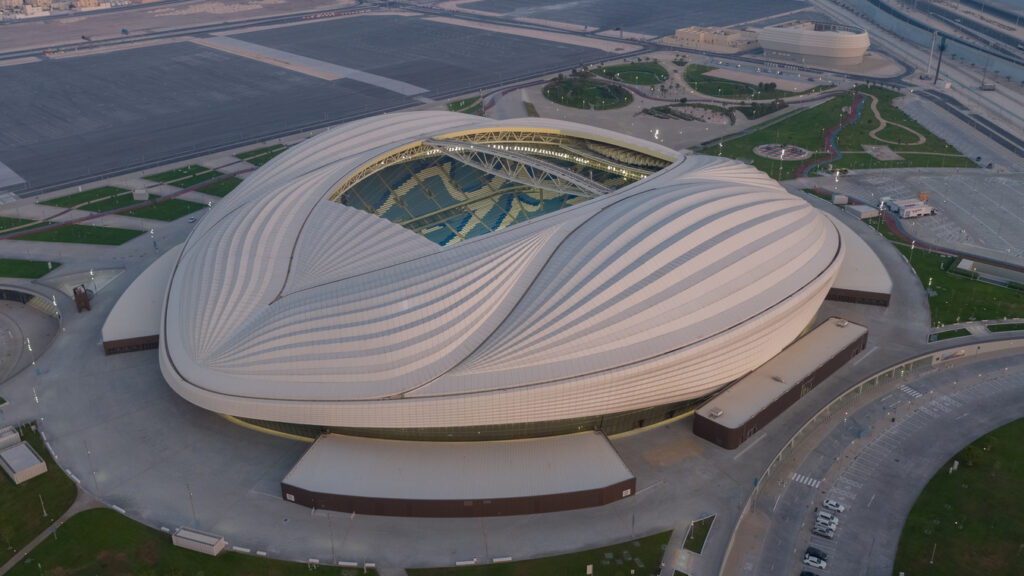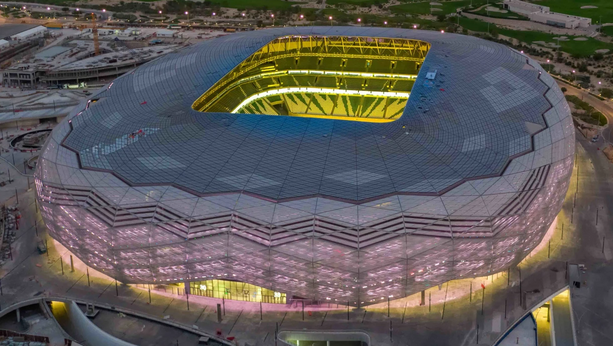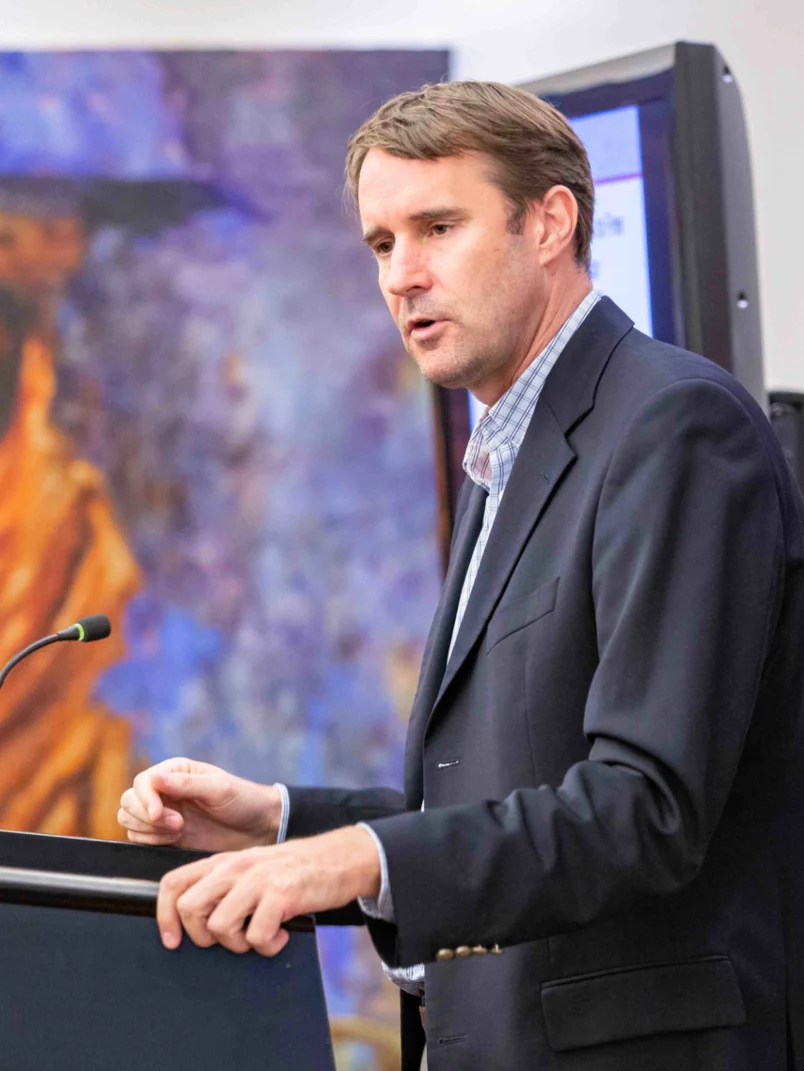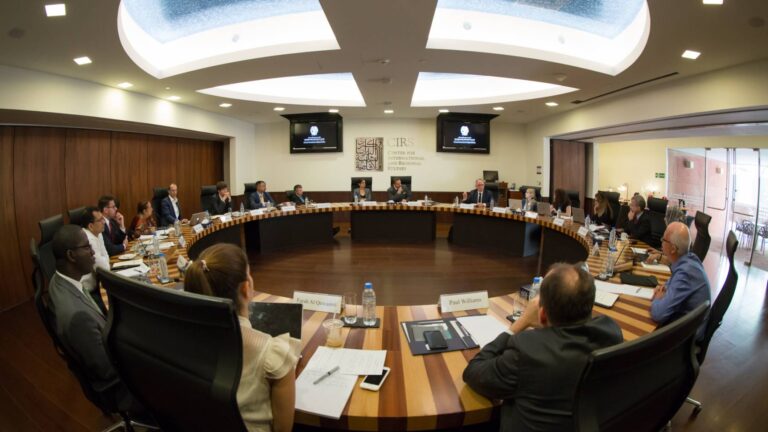Qatar’s World Cup Goals: Moving from the Periphery to the Center

Background and Scope
The Center for International and Regional Studies (CIRS) at Georgetown University in Qatar has developed its ongoing web-based research project on Building a Legacy: Qatar FIFA World Cup 2022 into a more focused research initiative with a scholarly outcome of either an edited volume or journal special issue. Continuing under the intellectual guidance of GU-Q Visiting Associate Professor Danyel Reiche, the next iteration of the project builds on the Center’s previous research initiatives and aims to examine the role the FIFA World Cup 2022 plays in enabling the small yet affluent Arabian Peninsula state of Qatar to move from the periphery of global sports and politics to the center.
The locus of world sporting systems has traditionally been associated with the global north, relegating the small Gulf states, such as Qatar, to a periphery position in this international arena. By winning the bid to host numerous blue-ribbon events, including the FIFA World Cup, Qatar has worked to actively elevate its international sporting position. By simultaneously demonstrating its foreign policy credentials, facilitating peace agreements, and hosting talks between conflict parties, Qatar has also sought to enhance its international reputation as a responsible global citizen, quickly becoming a key actor setting global standards in politics as well as sports.
Qatar’s strategy of utilizing sports to enhance its international standing and profile is long-term and predates its World Cup bid by many years. Since 1993, Qatar has hosted the ATP Qatar Open, an annual global tennis tournament, and, in 2004, it established Aspire Academy, a state-of-the-art training center, complete with indoor football facilities, a specialized orthopedic and sports medicine hospital, and multi-purpose sports halls and stadiums. Qatar has further cemented its credentials as an important international sports actor through ownership of one of the world’s leading football clubs, Paris Saint-Germain. In addition, Qatar’s state-owned airline, Qatar Airways, has minted sponsorship deals with FC Barcelona and Bayern Munich, among other top clubs, and its Al-Jazeera TV network has achieved success in sports broadcasting with its subscription-based sports subsidiary, beIN.
CIRS undertakes this multidisciplinary research initiative to examine how the FIFA World Cup has helped transform Qatar’s reputation, positioning the country as a major player in global politics and sports. Some of the key areas of in-depth academic study include: Qatar’s development model integrating sport into the national economy; beIN Sports and its influence beyond the Middle East and North Africa (MENA) region; developing Qatar as a tourist destination; Qatar Airways and sport sponsorships around the world; Qatar’s technical innovations for the World Cup; footballing popular culture, local trade, and consumerism; and Qatar’s sports operations during the COVID-19 pandemic, among many other pertinent topics.
Project Participants
- Hissa Al-Kubaisi
- Aisha Al-Kuwari
- Katherine Babiak – University of Michigan
- Paul Brannagan – Manchester Metropolitan University
- Uday Chandra – Georgetown University Qatar
- Kristian Coates Ulrichsen – Rice University
- Andreas Flouris – University of Thessaly
- Ross Griffin – Qatar University
- Craig LaMay – Northwestern University in Qatar
- Zarqa Parvez – Georgetown University in Qatar
- Danyel Reiche – Georgetown University Qatar
- Sebastian Sons – Center for Applied Research in Partnership with the Orient
- Kamilla Swart-Arries – Hamad Bin Khalifa University
- Irene Theodoropoulou – Georgetown University Qatar
Building a Legacy: Qatar FIFA World Cup 2022
A web-based research project that examines different aspects of staging the FIFA Men’s World Cup in Qatar. The project includes blog posts and analytical articles by the center’s network of regional and global scholars as well as a podcast series and interviews with major stakeholders involved in global football and in the organization of the 2022 FIFA World Cup in Qatar.


Faculty Lead
Danyel Reiche
Visiting Associate Professor at GU-Q
